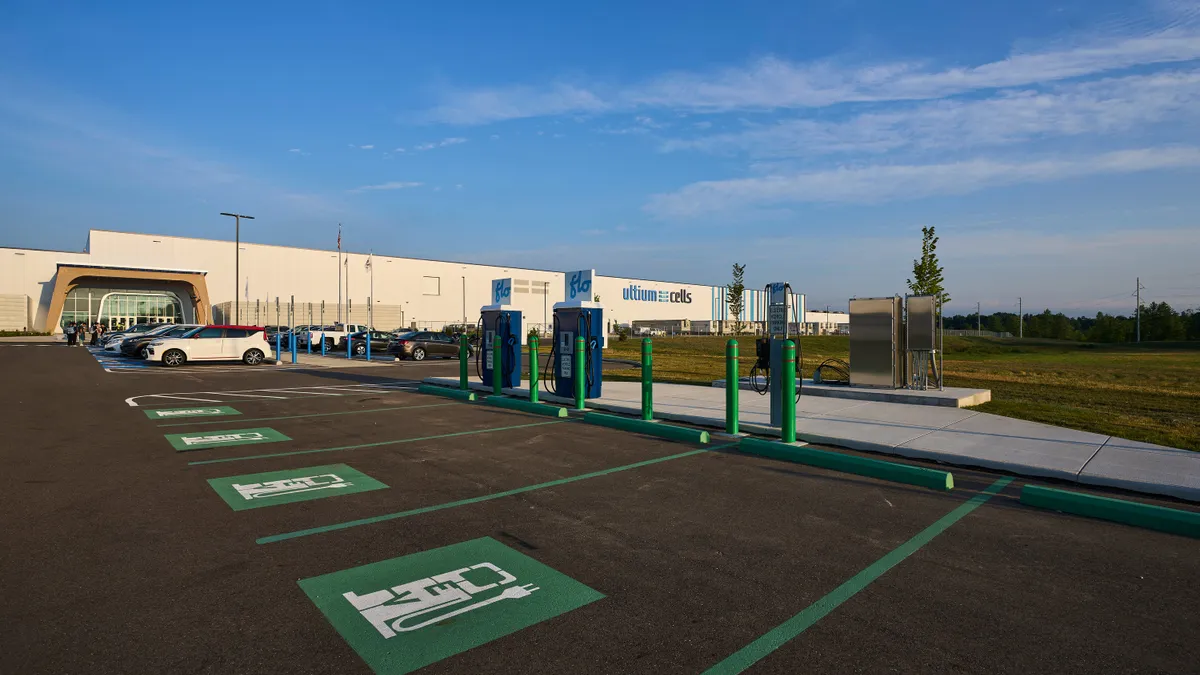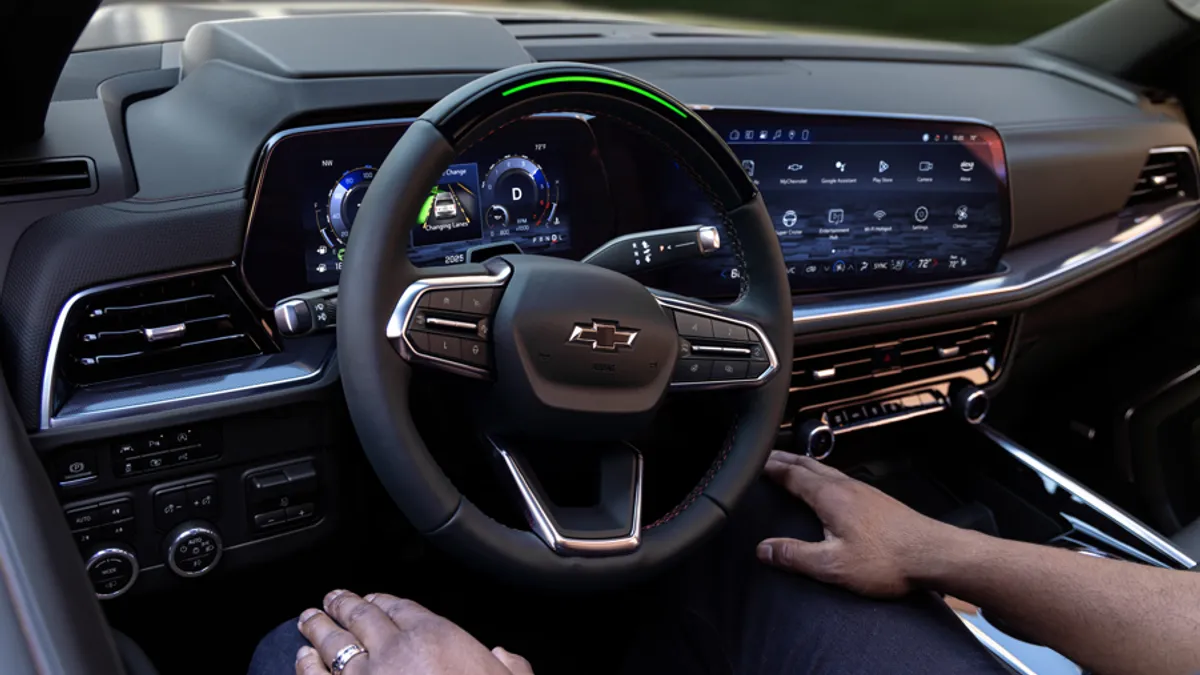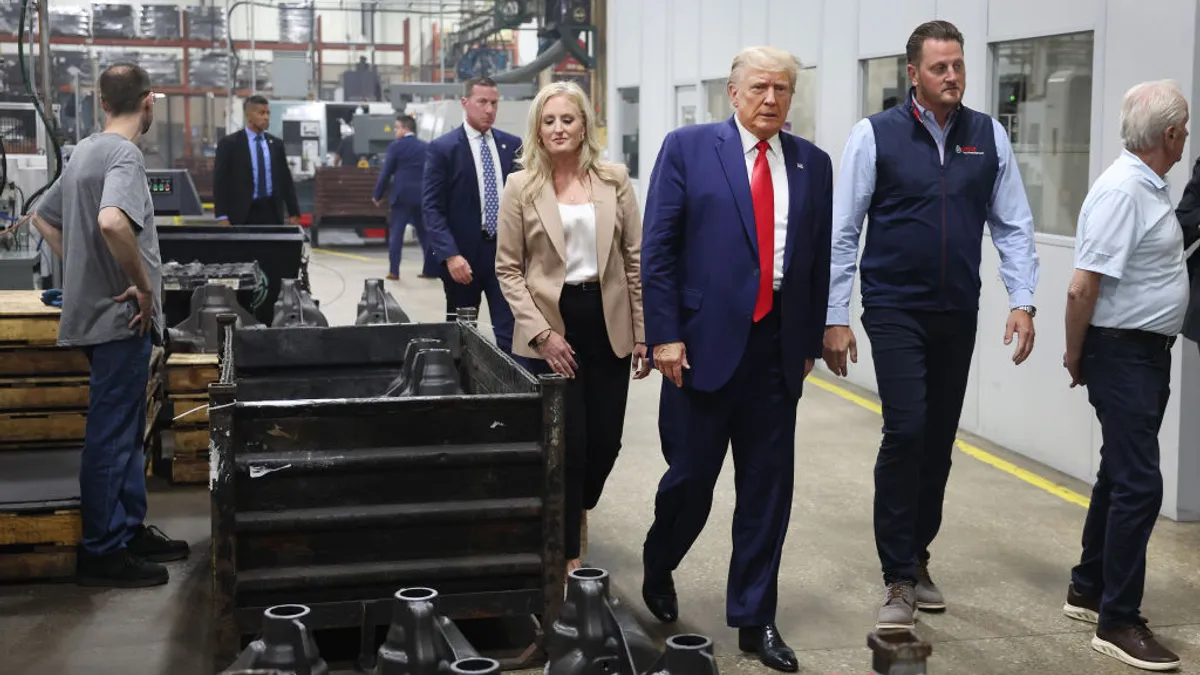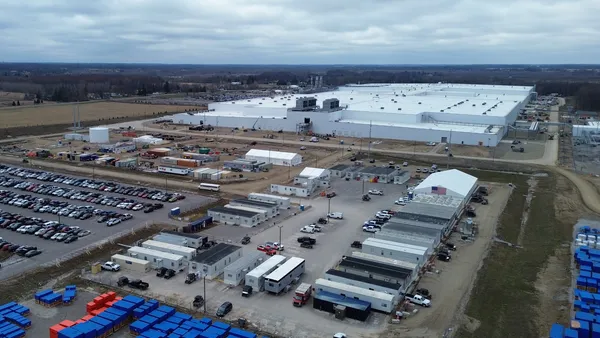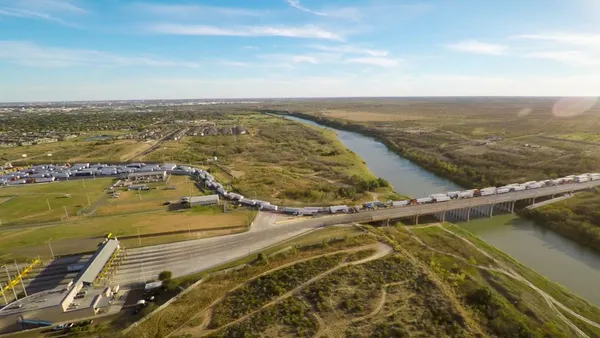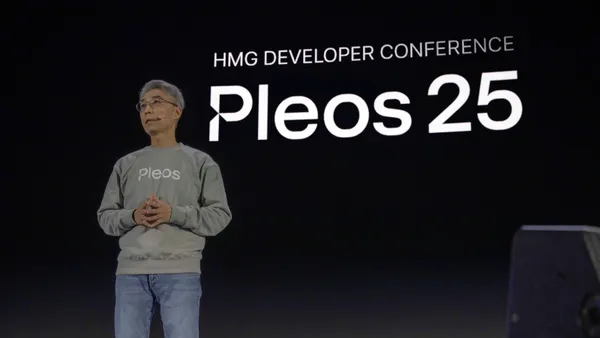Dive Brief:
- Battery recycling company Redwood Materials is working with Ultium Cells LLC, the battery cell manufacturing joint venture between General Motors and LG Energy Solution, to recycle production scrap from Ultium’s Warren, Ohio, and Spring Hill, Tennessee, battery factories, according to a May 23 press release. The two factories are producing battery cells for GM’s future electric vehicles.
- Redwood will recycle both cathode anode materials and other cell components, which will be processed and used to produce new batteries.
- According to Redwood, as GM executes its EV plans, the two Ultium Cells joint venture battery cell factories are expected to produce more than 80 gigawatt hours of battery cells annually. Redwood expects to collect a majority of its battery scrap materials from the manufacturing processes at the two plants.
Dive Insight:
Battery recycling is one of the long-term initiatives of the auto industry’s transition to electrification, which could help reduce the costs of producing new batteries and lower the costs of EVs and make them more sustainable.
The recycling project with Ultium Cells is funded by the Advanced Technology Vehicles Manufacturing Loan Program. Ultium Cells and Redwood Materials were selected by the Department of Energy’s Loan Programs Office to jump-start critical battery materials and cell production as part of the Biden Administration’s efforts to establish domestic production of EV batteries and lessen the reliance on suppliers in China.
“As automakers and cell manufacturers continue to ramp up domestic battery production, Redwood stands ready to support this growth with our highly sustainable and scalable battery materials process,” the press release said.
The Ultium Cells JV battery plant in Tennessee began shipping cells to GM in March. Eventually, the two JV plants will produce millions of battery cells each year for GM.
Redwood was founded in 2017 by Tesla co-founder and former chief technology officer J.B. Straubel, who still serves on the electric automaker’s board of directors. Redwood says it can recover around 95% of the nickel, cobalt, lithium and copper from end-of-life EV batteries.
Redwood estimates that current methods of battery cell manufacturing generate a 5%-10% scrap rate on average, or around 10,000 tons of material annually. Its facility in Nevada has the capacity to process and recycle 40,000 metric tons of battery scrap annually, which is equal to around 15-20 GWh. However, the company’s recycling capacity will continue to expand.
In February 2023, Redwood received a $2 billion conditional loan commitment from the Department of Energy to expand its battery materials recycling capacity to support the growing EV market. In August 2023, the company announced it raised over $1 billion in a series D funding round.
Redwood planned to use the funds to expand its U.S. battery supply chain, which will eventually allow customers like GM and Toyota to buy recycled battery materials domestically for the first time to supplement the key materials needed to produce new batteries.
Tesla’s battery supplier, Panasonic, also plans to use recycled cathode materials supplied by Redwood to produce batteries at a new factory in Kansas, which is currently under construction and slated to begin production in 2025.



